
Opinions
22:48, 23-Jan-2018
WEF: Expert assesses China's globalization initiative
CGTN
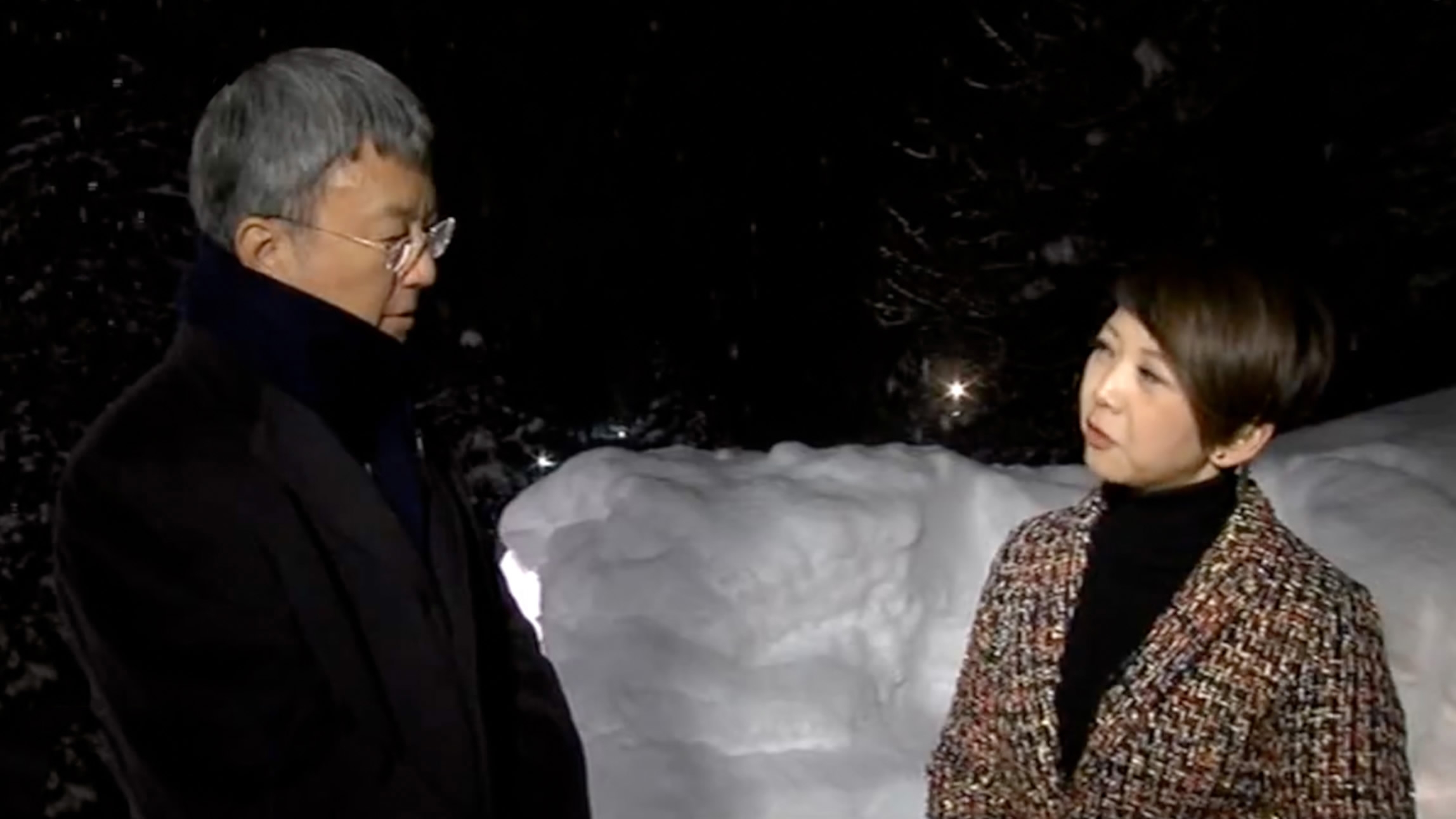
With the annual World Economic Forum (WEF) starting at Davos, the Swiss ski town, on Monday, CGTN anchor Tian Wei spoke with Zhu Min, a former deputy managing director of the International Monetary Fund (IMF), at the scene on China's efforts in pushing forward globalization, opening up and cooperating with other countries as it assumes a leading role in the global economy.
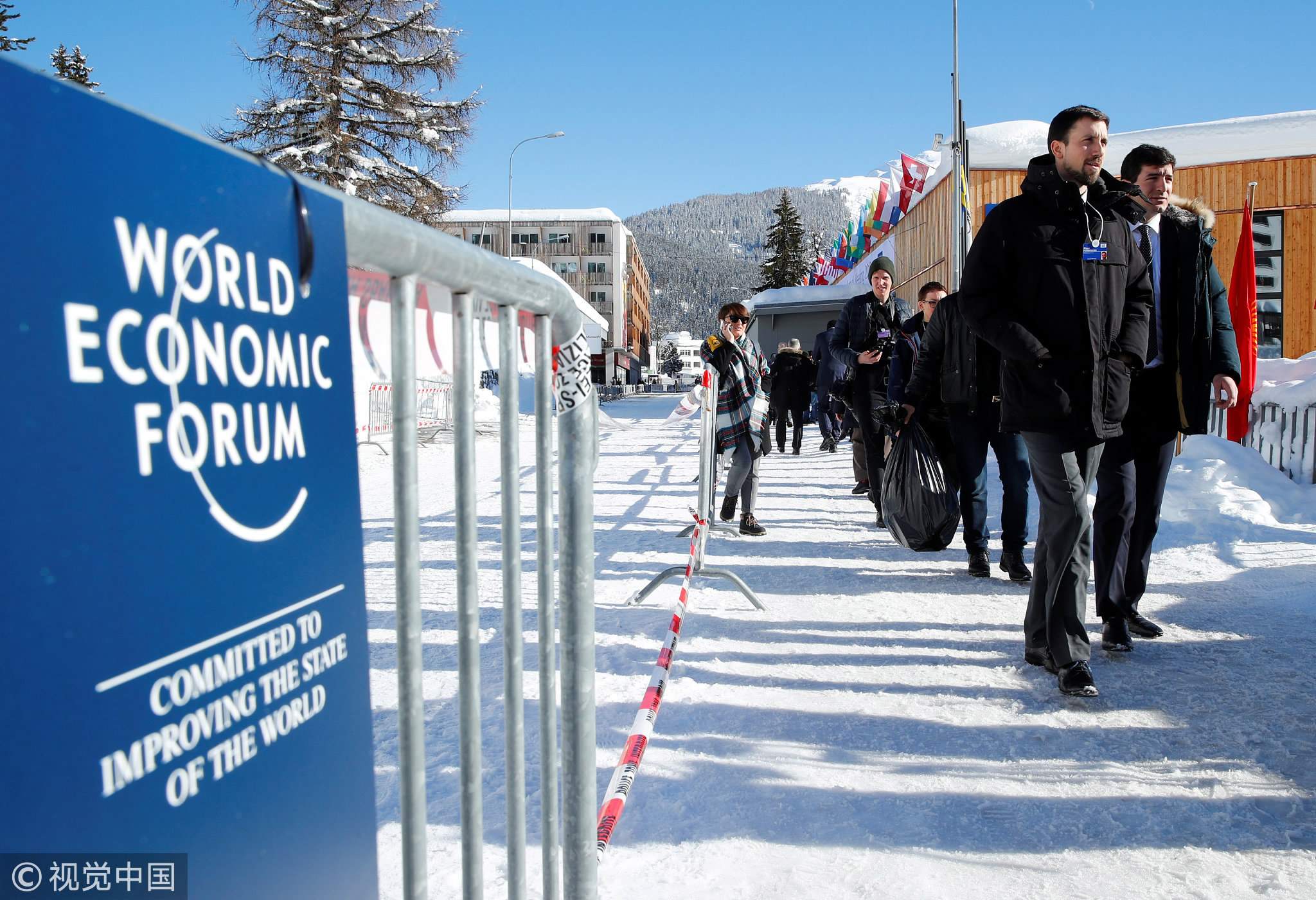
Attendees arrive for the World Economic Forum annual meeting in Davos, Switzerland, January 23. Denis Balibouse. /VCG Photo
Attendees arrive for the World Economic Forum annual meeting in Davos, Switzerland, January 23. Denis Balibouse. /VCG Photo
Chinese achievements of 2017 Davos
Given the Chinese President Xi Jinping’s widely welcomed speech last year with dozens of promises at Davos which many delegates this year still remember, anchor Tian asked, “How much has been realized so far?"
Zhu noted the big issue was the One Belt One Road Initiative. “China held a big summit on May 14 last year in Beijing” and “continues to commit and support its B&R role in investments, infrastructures and financing.”
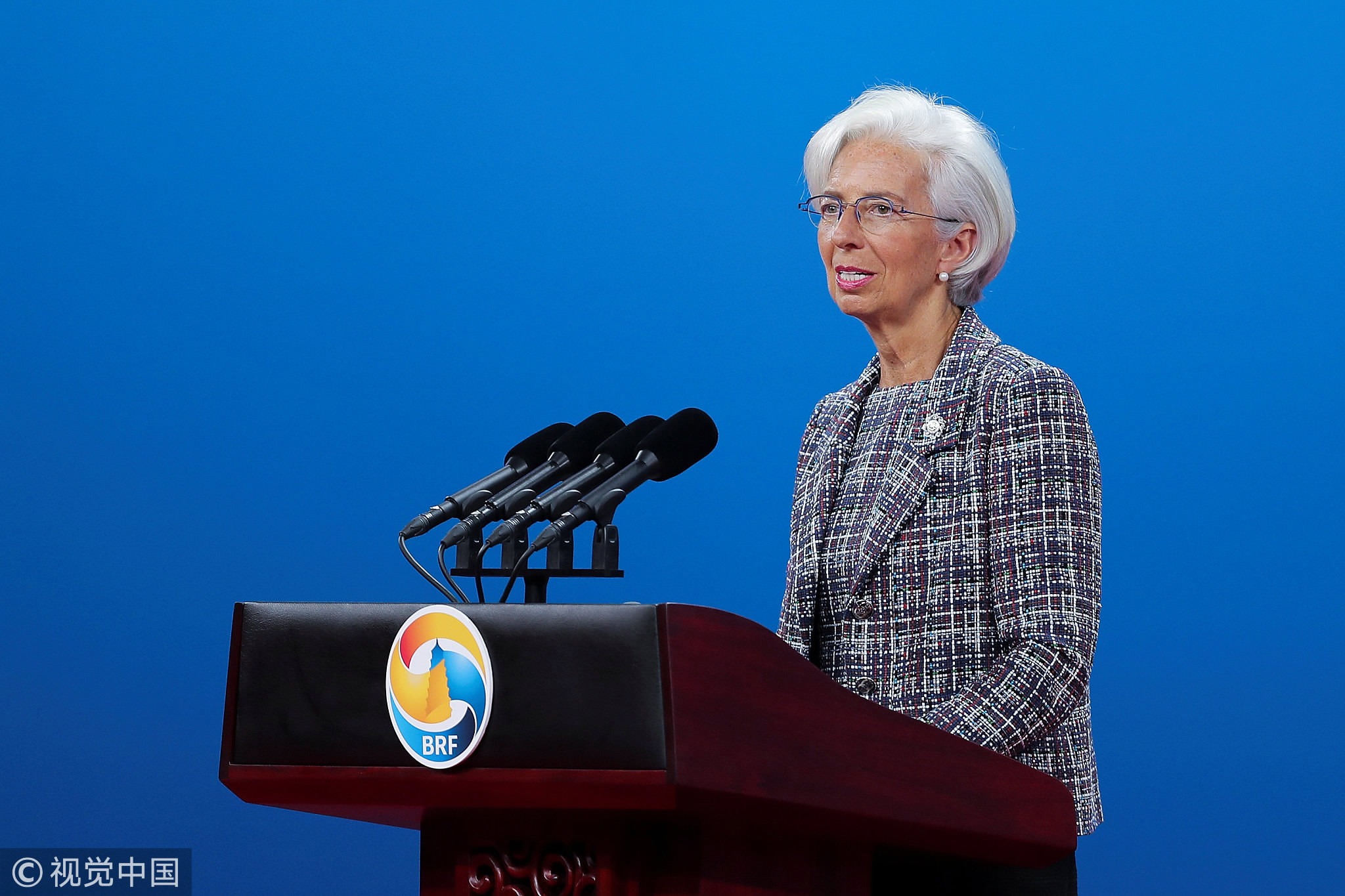
IMF Managing Director Christine Lagarde speaks during the Belt and Road Forum for International Cooperation in Beijing May 14, 2017. / VCG Photo
IMF Managing Director Christine Lagarde speaks during the Belt and Road Forum for International Cooperation in Beijing May 14, 2017. / VCG Photo
Second was China's continued opening up. Zhu mentioned the first China International Import Expo in Shanghai in November this year – indicating that “China is willing to import more from the whole world.”
Also, Zhu touched on the climate change issue in Paris and other examples of China’s perseverance on globalization that were all “the consequence of Xi's talk last year at Davos.”
A responsible stakeholder
Asked to be a responsible stakeholder 13 years ago by US Deputy Secretary of State Robert Zoellick, China has changed much since then.
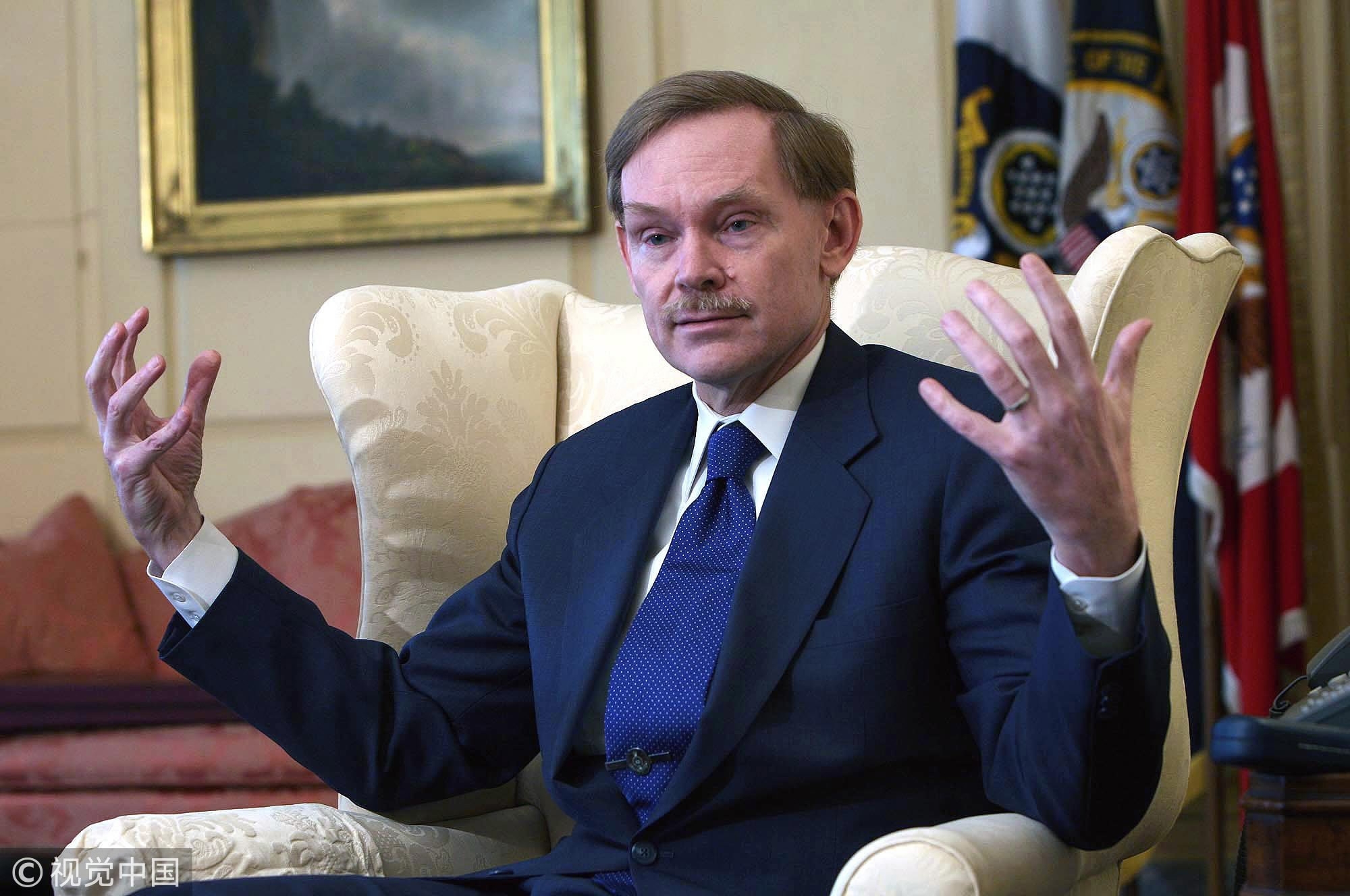
Then US Deputy Secretary of State Robert Zoellick said on March 1, 2006 that China needs to allow the yuan to trade more freely in order to help bring trade relations between itself and the US into better balance. /VCG Photo
Then US Deputy Secretary of State Robert Zoellick said on March 1, 2006 that China needs to allow the yuan to trade more freely in order to help bring trade relations between itself and the US into better balance. /VCG Photo
Zhu responded that China was obviously one of the important stakeholders in the world nowadays due to the policies of globalization and opening up.
"Well, China is the 2nd largest economy in the world, I mean. It is very different 13 years ago when China's economy was relatively small,” he noted.
“Chinese economy plays more important role in the sense that China contributes more than 35% of global GDP growth. China's import and export to the world also have a huge impact on global demand. So in this sense Chinese policy and Chinese position has a global impact.
“More importantly as President Xi Jinping mentioned last year,” Zhu said, “China sticks on globalization, opening-up and working with all the other countries and believes everybody is equal.” These contributed to an outstanding China which becomes one leading country in the global environment, he added.
Reaction to voices of doubt
Facing some voices of doubt regarding the slogans or the real actions of opening up, Zhu said China had answered with the B&R Initiative and what happened after Davos last year.
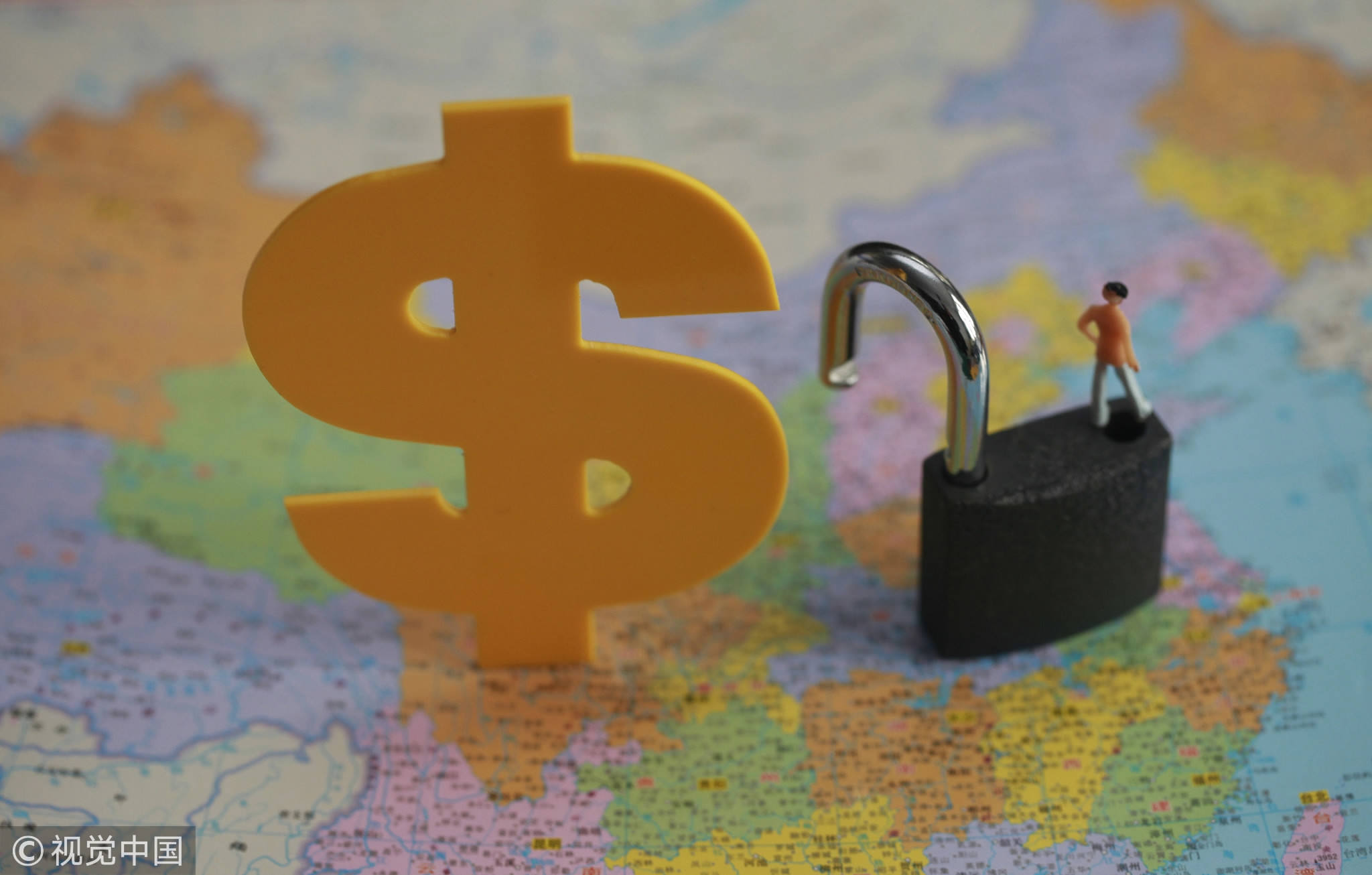
VCG Photo
VCG Photo
Zhu noted “China has opened the financial sector.” Foreign investors have been allowed to own 51 percent of Chinese securities firms, fund managers and futures companies, with the opportunity to own 100 percent after three years, which is “quite an open initiative," according to the former deputy managing director of the IMF.

SITEMAP
Copyright © 2018 CGTN. Beijing ICP prepared NO.16065310-3
Copyright © 2018 CGTN. Beijing ICP prepared NO.16065310-3